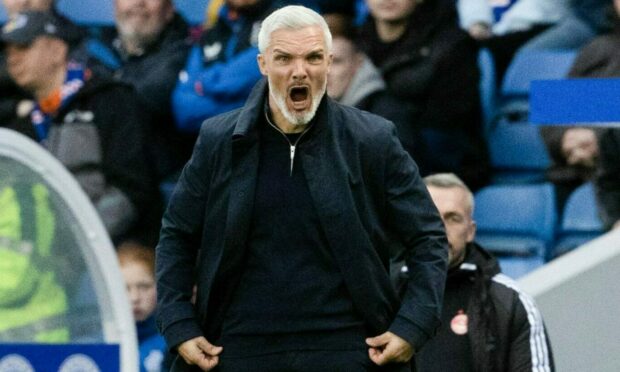The summer of 2012 seems like a long time ago.
Scottish football was presented with a one-time-only opportunity to recalibrate its mortally skewed competitive balance, but was too institutionalised to seize it.
That timidity manifests itself today in the objectively ridiculous situation whereby the manager of the team sitting third in the table can be ridiculed as a naive idealist for his ambition to attack and win at the home of the side one place above them.
When such a substantial amount of cultural, psychological and financial barbed wire protects the gate against which those clubs outside the top two are required to push, it can be hard to see why they would even bother – and thus the cycle begins anew.
Jim Goodwin fell into the narrative
Jim Goodwin, albeit with the best intentions, inadvertently fell into this narrative when he made a point of gathering a squad comprised largely of new arrivals to Scotland and drilling them on the importance of matches at this venue.
While it is admirable to seek to imbue the club’s current custodians with the spirit of its past battles, nothing matters more to them than the here and now, and presenting one rival as having special intangible qualities only reinforces the mythology which insulates them from challenge.
It can be hard, when one has lived for so many years in the shadows of imposing trees, to remember that it is still a forest seen from afar.
Perhaps those recruits, not weaned on inferiority, had in fact had the better view all along.
A decade on, the route to the top of the Scottish game feels narrower than ever.
But when it is navigated, it will be by one who sees the incumbents as targets to attack, not giants to fear.
They may scoff, but in that is Goodwin absolutely correct.

Conversation